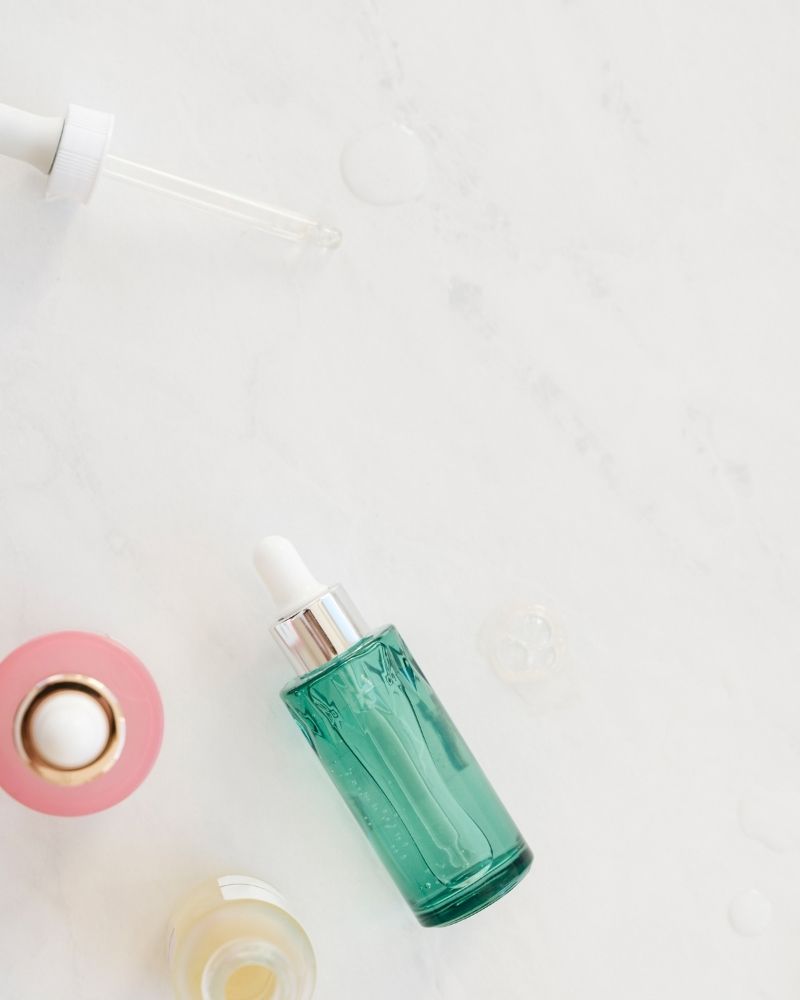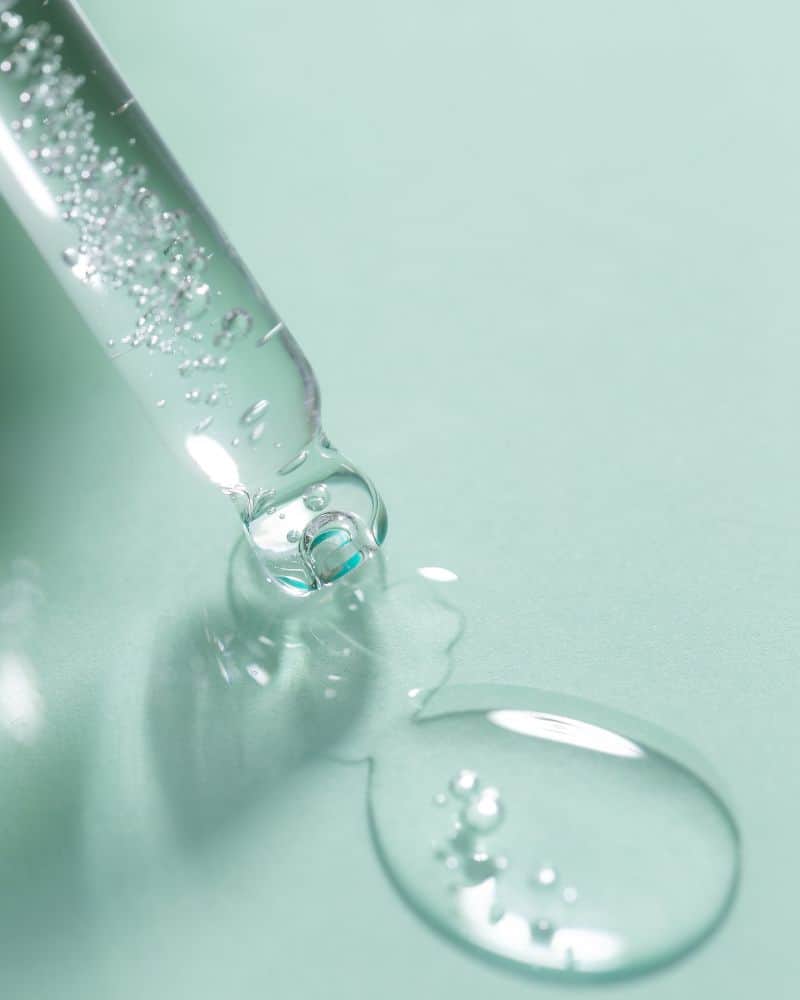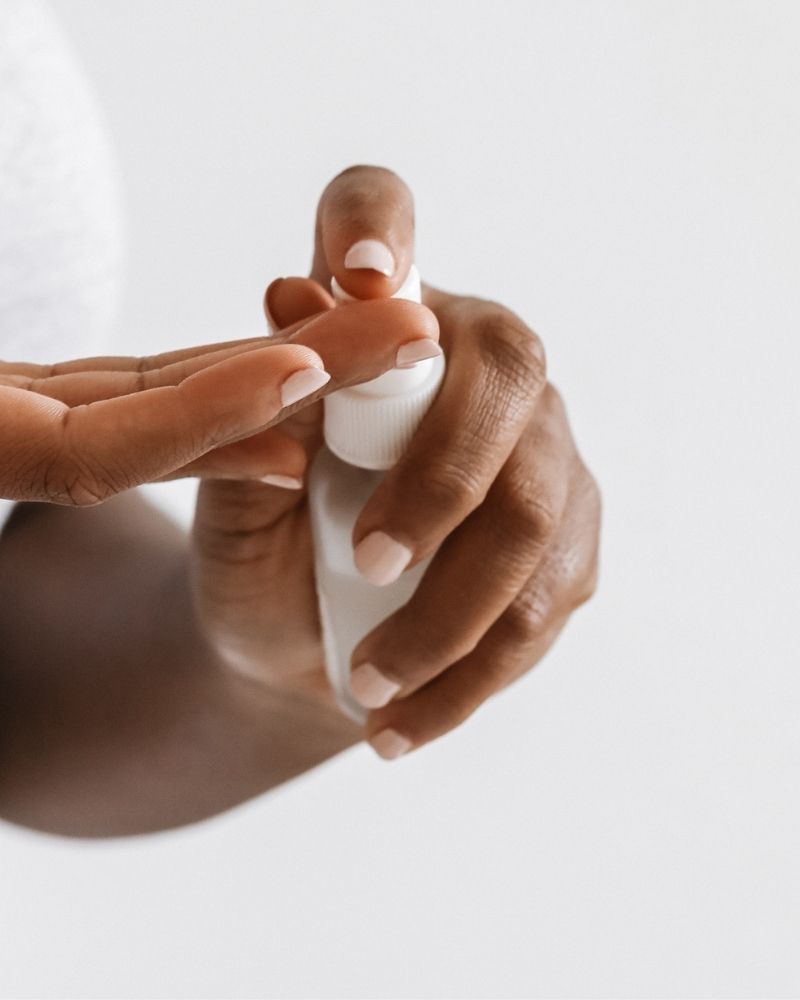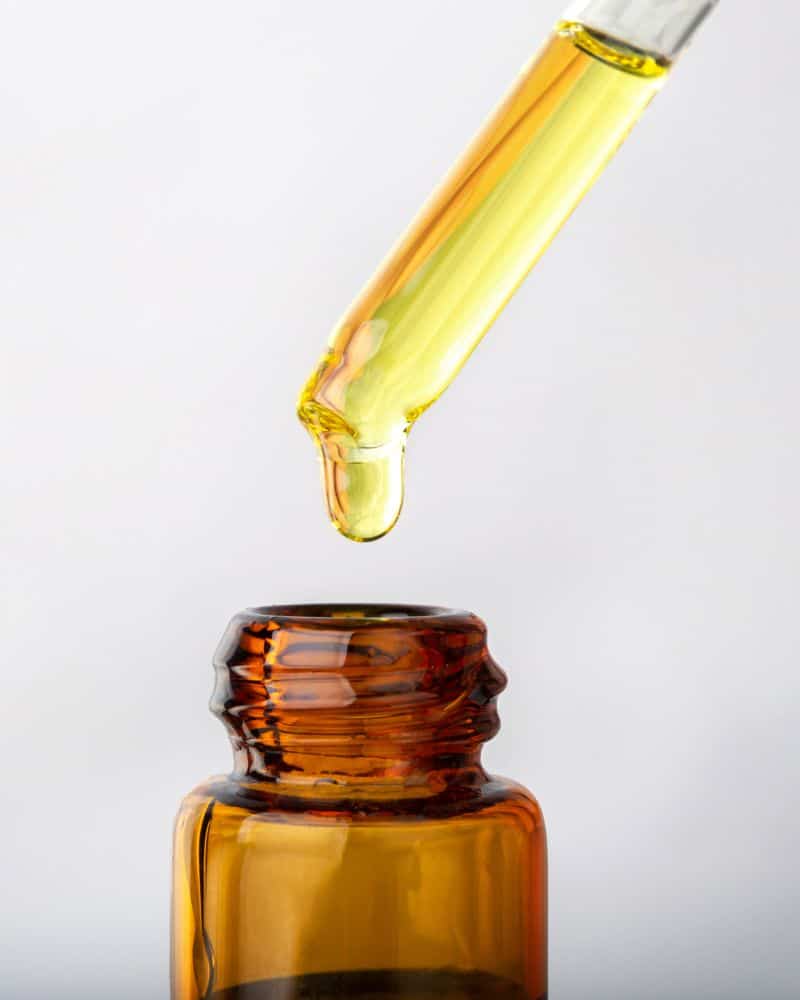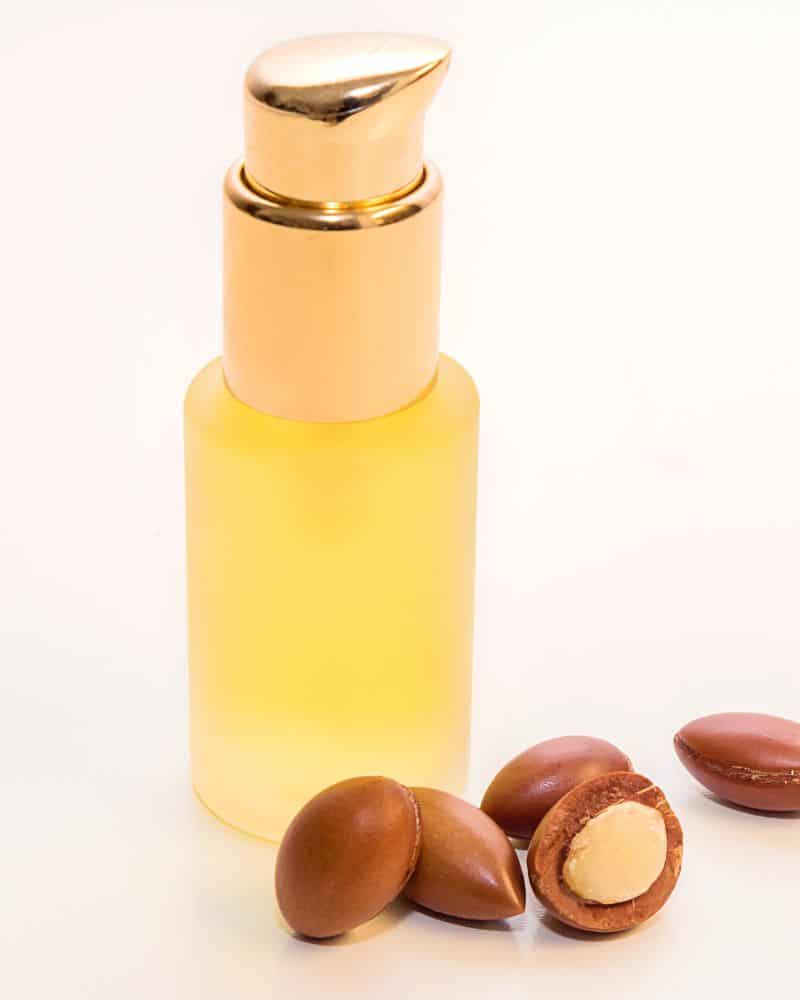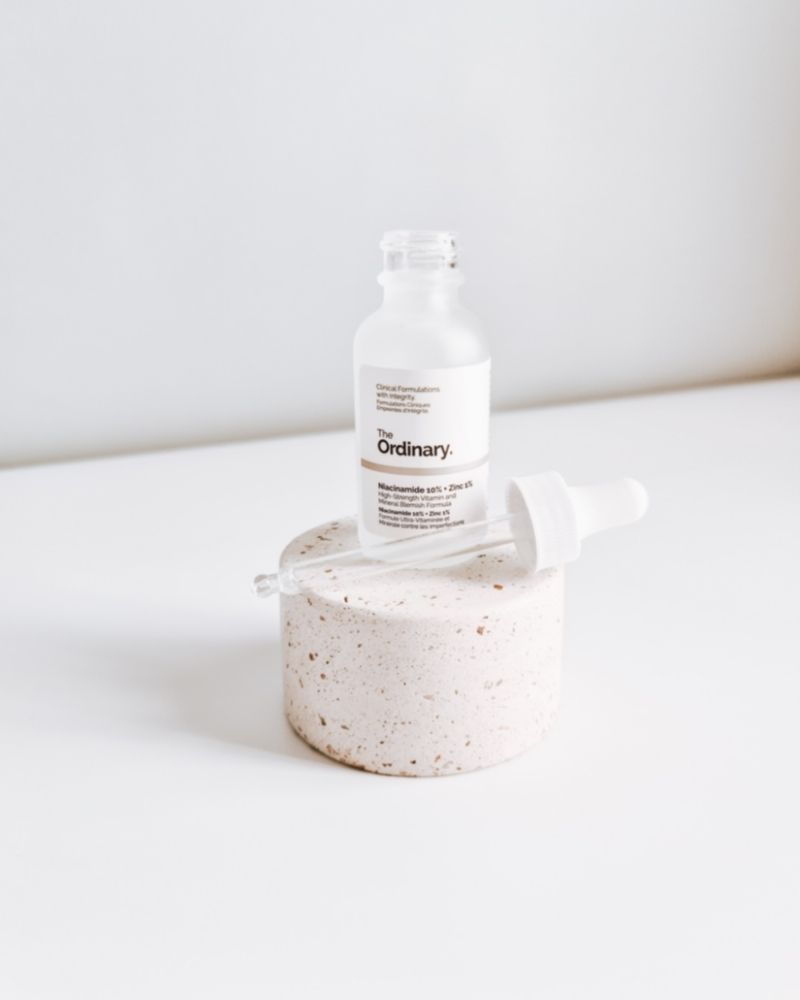Alpha Arbutin vs. Azelaic Acid: What’s The Difference?
This post may contain affiliate links.
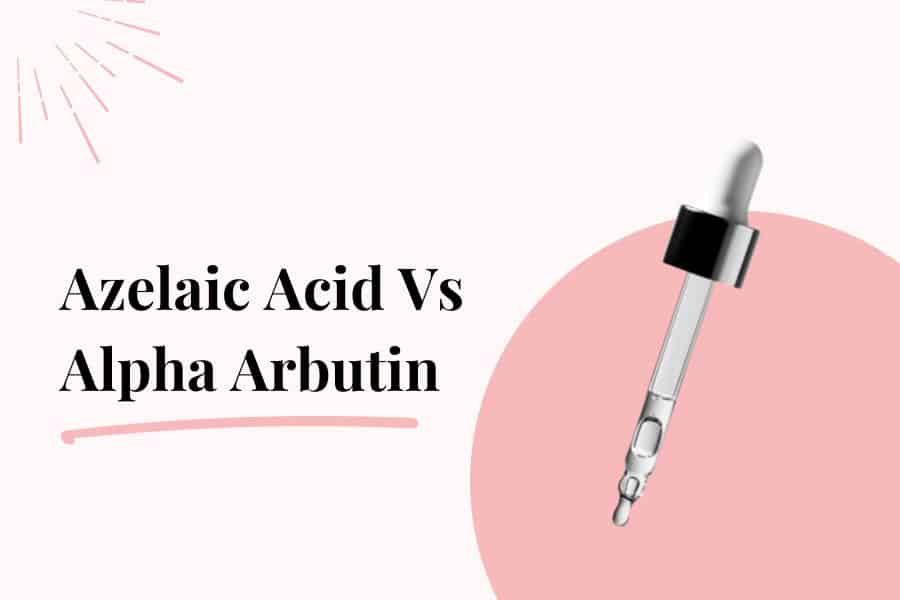
If you’re looking for a brightening serum to fade hyperpigmentation or acne scars, chances are you’ve come across alpha arbutin and azelaic acid. Both ingredients boast brightening benefits, but what’s the difference between them? In this blog post, we’ll break down the key differences between alpha arbutin vs azelaic acid so you can make the best decision for your skin care routine.
What Is Alpha Arbutin?
Alpha arbutin is a plant-based ingredient that can be derived from bearberry, cranberry, or blueberry plants. It’s actually a derivative of the powerful lightening agent hydroquinone, which means it can be extremely effective at lightening the skin.
Alpha arbutin works by inhibiting melanin production, which is the main cause of hyperpigmentation and dark spots. It does so by blocking the activity of tyrosinase, an enzyme that’s responsible for triggering melanin production.
Alpha arbutin is often used in products that are meant to treat hyperpigmentation, dark spots, and uneven skin tone. It’s considered to be much safer and more gentle than hydroquinone, making it a good choice for those with sensitive skin.
Alpha arbutin is considered to be more stable and less irritating than other forms of arbutin, making it a popular choice for skin care products.
Benefits of Alpha Arbutin
- Fades hyperpigmentation – Alpha arbutin is one of the best OTC ingredients for fading dark spots, acne scars and hyperpigmentation. It helps to lighten the skin, similarly to hydroquinone.
- Prevents hyperpigmentation – Alpha arbutin can also help to prevent the formation of new dark spots and hyperpigmentation by preventing melanin production, which is what causes hyperpigmentation
- Evens skin tone – Alpha arbutin can help to even out the skin tone by lightening dark spots and hyperpigmentation. If you have uneven skin tone from sun spots, hyperpigmentation or any other kind of pigment, alpha arbutin is a great ingredient to even out those pesky dark spots
- Promotes wound healing – Alpha arbutin promotes wound healing by up-regulating growth factors to help speed up healing
- Brightens skin – Alpha arbutin is one of the most gentle skin brighteners available OTC. It can help to brighten the skin and give it a more radiant appearance
- Gentle – Alpha arbutin is much gentler than other lightening agents like hydroquinone, making it a good choice for those with sensitive skin
What Is Azelaic Acid

Azelaic acid is a dicarboxylic acid that occurs naturally in grains like wheat, rye, and barley. Although it’s naturally occuring, synthetic Azelaic Acid is usually used in skincare products.
Azelaic acid has been shown to be an effective acne treatment because of its ability to kill acne-causing bacteria while also reducing inflammation, which is why it’s FDA approved to treat acne and rosacea.
Azelaic acid is a keratolytic, an antibacterial, antioxidant, and anti-inflammatory that helps to break down dead skin cells and improve skin texture. And even though Azelaic Acid is a powerhouse ingredient, it’s actually very gentle on the skin and is one of the best exfoliants for those with sensitive skin because it’s much more gentle than other ingredients like retinoids or BHA’s.
Azelaic acid is actually produced by the healthy bacteria that live on your skin known as Malassezia furfur? In order for this to affect your skin in a positive way, you must have enough healthy bacteria on your skin already, though—and that’s usually not the case with troubled skin.
While it might not be the first ingredient to come to mind (or maybe even at all), azelaic acid is a favorite of dermatologists for both its gentleness and versatility. It helps with a ton more than just acne breakouts: It may help banish other forms of bacteria and reduce redness brought on by different skin conditions such as rosacea or hyperpigmentation.
This ingredient is derived from grains, although synthetic variations of it are available as well. You can find azelaic acid both in prescription/medicinal and commercial forms. Prescription azelaic acid is highly concentrated, and it can contain up to 20% of azelaic acid, while OTC product typically have a much lower dose (usually around 5-10%).
Related post: Is Azelaic Acid An AHA or BHA?
Benefits of Azelaic Acid
- Anti-Bacterial – Azelaic acid has anti-inflammatory and antibacterial properties that make it ideal for acne-prone skin. It kills acne cause bacteria which treats active acne and helps prevent new acne from forming
- Anti-Inflammatory – Azelaic acid is anti-inflammatory so can reduce redness, swelling, and inflammation. This makes it perfect for individuals with sensitive skin or ailments like rosacea or eczema, but it can also help reduce inflammation associated with acne
- Smooths Texture – Azelaic acid aids in the breakdown of the attachments that hold dead skin cells together, resulting in smoother, brighter, and softer skin.
- Keratolytic – Azelaic acid’s keratolytic properties help to break down dead skin that that can lead to clogged pores and acne which can help with closed comedones and other textural issues
- Treats Roseacea – Rosacea is a common skin condition that can cause redness, inflammation, and pimple like lesions. Azelaic acid is one of the most efficient rosacea treatments since it helps to reduce redness, swelling, and bumps associated
- Fades Hyperpigmentation – Azelaic acid is also great for fading dark spots and hyperpigmentation, including acne scarring by inhibiting the creation of an enzyme called tyrosinase, which is important in melanin synthesis (which is what creates pigment)
- Treats & Prevents Acne – Azelaic acid is also useful for treating and preventing acne. It helps to kill bacteria, unclog pores and reduce inflammation which are all key in treating acne
Similarities & Differences Between Azelaic Acid and Alpha Arbutin

Both azelaic acid and alpha arbutin are known for their brightening benefits, but there are some key differences between the two ingredients. For starters, azelaic acid is a naturally occurring compound found in grain cereals like barley and wheat. Alpha arbutin, on the other hand, is a synthetic derivative of hydroquinone—a powerful bleaching agent.
In terms of brightening benefits, both azelaic acid and alpha arbutin can help diminish the appearance of dark spots and hyperpigmentation. However, they work slightly differently. While they both affect the production of melanin by acting on the enzyme called tyrosinase, which is needed for melanin synthesis.
Azelaic acid acts on the enzyme tyrosinase which inhibits melanin production. Alpha Arbutin also inhibits melanin production by acting on the enzyme tyrosinase, but it does so by telling tyrosinase to stop producing tyrosine, which is needed to produce melanin.
Azelaic acid is also antibacterial and anti-inflammatory, while alpha arbutin is not. This means that azelaic acid can help to treat and prevent acne, while alpha arbutin cannot.
That said, azelaic acid may be better suited for those with sensitive skin because it has more anti-inflammatory properties that can help to soothe skin and reduce redness. Additionally, azelaic acid can also help clear up acne thanks to its antibacterial and exfoliating properties.
Alpha Arbutin Vs Azelaic Acid For Hyperpigmentation & Acne Scars
So is alpha arbutin the best for hyperpigmenation or is azelaic acid the best?
Studies show that azelaic acid is more effective than Alpha Arbutin for treating acne. In fact, azelaic acid has been shown to be just as effective as hydroquinone without the side effects and risks associated with hydroquinone.
Of course, that’s not to say that alpha arbutin isn’t effective. Alpha arbutin is still a very good choice for treating hyperpigmentation, sun spots and other skin pigment issues like melasma.
Related post: Azelaic Acid Vs Benzoyl Peroxide
Can You Use Alpha Arbutin And Azelaic Acid Together?
Yes, you can use both Alpha Arbutin and Azelaic Acid together. In fact, many skin care products contain both of these ingredients because they work so well together.
When used together, Alpha Arbutin and Azelaic Acid can help to brighten the skin, even out skin tone and texture, and reduce the appearance of acne scars and other types of hyperpigmentation.
Using both alpha arbutin and azelaic acid together can help to tackle hyperpigmentation from multiple angles for even better results. Since they both inhibit melanin synthesis in different ways, using them together can help to target pigment at its root cause for more effective results.
How to Use Alpha Arbutin and Azelaic Acid Together
It’s completely safe to use alpha arbutin and azelaic acid in the same routine. In fact, many skin care products contain both of these ingredients, plus other brightening ingredients like niacinamide or vitamin c.
If you’re using them in separate products, simply follow the thinnest to thickest rule. For example, if you’re using an alpha arbutin serum and an azelaic acid cream, you’ll use the serum first, followed by the cream.
Alpha Arbutin Vs Azelaic Acid FAQ’s

Is Alpha arbutin the best for hyperpigmentation?
Studies show that azelaic acid is more effective than Alpha Arbutin for treating hyperpigmentation. In fact, azelaic acid has been shown to be just as effective as hydroquinone without the side effects and risks associated with hydroquinone.
Is alpha arbutin better than azelaic acid?
While both are great ingredients, azelaic acid is more powerful and can also help treat rosacea, acne, smooth skin texture, reduce redness and inflammation in the skin. Alpha arbutin helps to lighten the skin and promote wound healing.
Alpha Arbutin Vs Azelaic Acid Wrap Up
When it comes to brightening ingredients, azelaic acid and alpha arbutin are two of the most popular options on the market. Both ingredients can help diminish the appearance of dark spots and hyperpigmentation; however, there are some key differences between them. Azelaic acid is a naturally occurring compound found in grain cereals while alpha arbutin is a synthetic derivative of hydroquinone—a powerful bleaching agent. Additionally, while both ingredients boast brightening benefits, azelaic acid may be better suited for those with sensitive skin because it’s more gentle. So, which ingredient should you choose for your skin care routine? The answer ultimately depends on your individual skin type and what your main goal is—if you have sensitive skin or are looking for an all-in-one product that can help with both dark spots and acne, go with azelaic acid. However, if your main goal is brightening and you don’t have sensitive skin, alpha arbutin may be a better option.
If you’re trying to decide whether to use azelaic acid or alpha arbutin in your skincare routine, it really depends on your individual needs. If you have sensitive skin or are looking for a gentle brightening agent, then alpha arbutin is a good choice for you. However, if you have acne-prone skin or are looking for something with antibacterial properties, then azelaic acid would be a better option. Whichever one you choose, both ingredients can help brighten and even out your complexion!
Alpha Arbutin and Azelaic Acid are both great ingredients for treating hyperpigmentation and acne scars. They work in different ways to inhibit melanin synthesis, which reduces the appearance of dark spots and hyperpigmentation.
